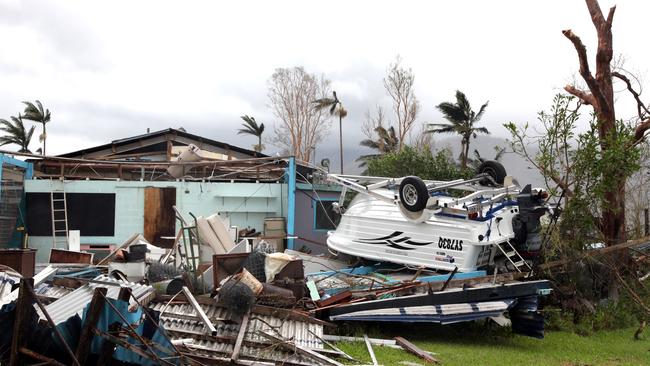Budget 2022: It’s raining cash in climate change fight
Labor will supercharge the newly established climate change department with a bucketload of funding to go to hiring bureaucrats and sending envoys overseas.

Labor will supercharge the newly established climate change department with a bucketload of funding to go to hiring bureaucrats and sending envoys overseas to “restore” Australia’s environmental reputation on the international stage.
The budget papers reveal $275m will be spent over the next four years to establish a “strong” Department of Climate Change, Energy, the Environment and Water as part of $24.9bn worth of spending measures over the decade. It will include $1bn set aside over five years to help communities mitigate against a forecast increase in natural disasters outlined in a new “fiscal impacts of climate change” section in the budget papers. Jim Chalmers warned that failing to act against climate change would put strain on future budgets.
Dubbed “Australia’s International Climate Step-Up”, the government will spend $20m this year and another $25m over the following five years to “restore Australia’s reputation and increase international engagement on climate change and energy transformation issues”.
“This funding will allow for leadership and engagement in the United Nations Framework Convention on Climate Change, including to secure a bid to host a Conference of the Parties in partnership with Pacific Island Nations, the Quadrilateral Security Dialogue and other international forums, delivery of international clean energy partnerships and capacity building in the Pacific,” the budget papers say.
“The government will provide $275.7m over four years from 2022-23 (and $60.5m per year ongoing) to support establishing a strong Department of Climate Change, Energy, the Environment and Water.”
Climate change was identified as a potential risk to future budgets, with forecast temperature rises and more extreme weather predicted to reduce economic activity and disrupt regions and supply chains, eroding the tax base and putting upward pressure on expenditure. The papers reveal that preliminary estimates of flooding this month in eastern Australia would cut about a quarter of a percentage point from Gross Domestic Product growth in the December quarter. The flooding, via increased fruit and vegetable prices and supply chain disruptions, is also expected to add 0.1 points to inflation in the December and March quarters.
Disaster Minister Murray Watt has set aside up to $200m a year for disaster prevention and resilience initiatives and Disaster Relief Australia will be given funding to deploy more than 5000 extra volunteers to respond to future disasters.
“It is vital we invest in reducing the impacts of these events, it reduces harm, loss of life, property loss and the impacts on economic productivity and furthermore is cheaper than disaster response,” Senator Watt said.
“After a decade of dithering, Australians now have a government that takes these threats seriously and is delivering on its commitment to do something about it.”
Dr Chalmers said the government had already provided a contingency of $3bn as a response to the recent floods.
“As we were finalising this budget, floods were once again tragically taking lives, wrecking homes, shutting businesses, disrupting livelihoods, and pushing up the cost of living,” the Treasurer said.
“Once again we are reminded of the solidarity that living on this harsh land demands of our people and our communities. These are human tragedies first and foremost, that come with broader consequences for the economy and for the budget.”

